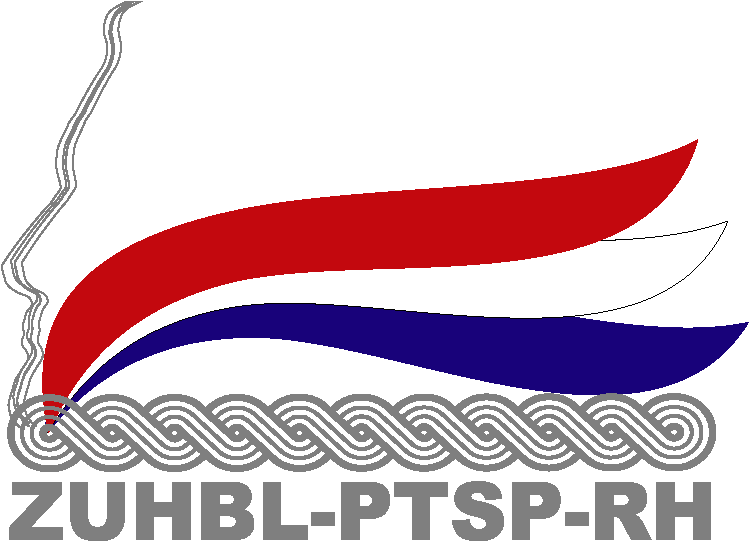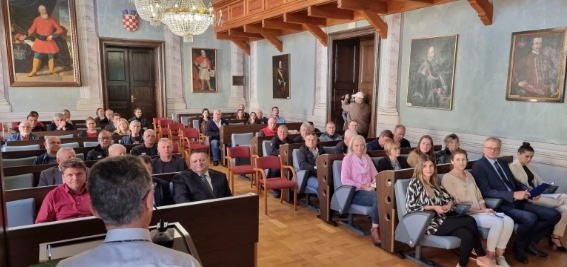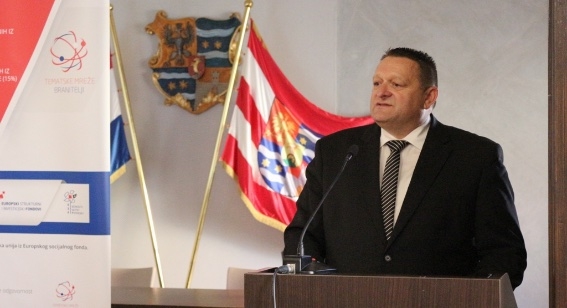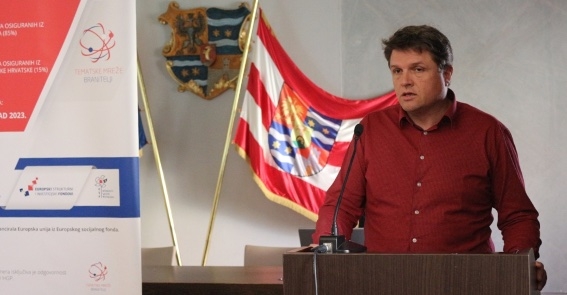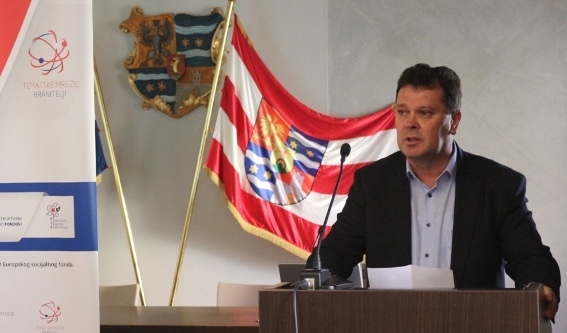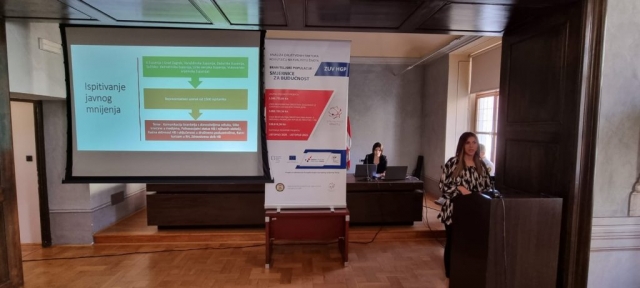The fourth structured dialogue of the Veterans Thematic Network was held in the County Palace in Varaždin, on this "Councilor (it is) activity of Croatian veterans and involvement in social entrepreneurship" Structured dialogues are conducted within the framework of the project "Analysis of social factors affecting the quality of life of the veteran population – guidelines for the future" which was co-financed by the European Union as part of the European Social Fund, and the holder is the Association of Associations of Veterans of Croatian Guards together with partners from civil society and the academic community. Today's event was hosted by the partner association of the Special Police Unit RODA, and the organizer Antun Berljak, a former veteran who showed by his example how we can change our social environment for the better, because with quality action at the local level, we also influence positive changes in society as a whole. Those present were greeted at the beginning by Dražen Vitez, the president of the SJP Association "Roda", then the president of the County Assembly, Ph.D. Josip Križanić as well as Deputy Mayor of Varaždin Miroslav Marković. General information about the project and its implementation was presented by its project manager Ida Maček. The purpose of the project is to contribute to the quality of life of Croatian veterans and victims of the Homeland War. Activities include the establishment of a thematic network, public opinion poll, six scientific researches and creation of several scientific and professional articles. The results of the project are guidelines for the development of public policies that are presented to decision makers during six structured dialogues, each organized in a different city in order to achieve regional equality of involvement in the process of creating public policies.. Through the cooperation of organized civil society with the academic community and scientific research institutions, new ones were built, that is, deepening the existing ones, competence, knowledge and skills in civil society organizations that have thus become competent for the quality transfer of social needs into professional analyzes based on arguments and evidence that can be used to advocate the improvement of public policies in various areas of social and economic development. Scientific and professional collaborators on the project, Ph.D. Nenad Pokos from the Ivo Pilar Institute of Social Sciences, mag. oec. Alen Halilović and mag. psych. Ivana Maslov together came to the conclusion that veterans' cooperatives and associations are recognized as one of the key organizations that can actively contribute to the development of social innovations that will directly affect the employment of vulnerable groups, which include Croatian veterans and victims of the Homeland War. One of the key proposals is the transformation of veterans' cooperatives into social enterprises, which will provide an opportunity for sustainable business, the possibility of employing young staff and reinvesting profits in the development of the local community with the aim of providing equal opportunities to Croatian veterans and victims of the Homeland War and their family members. The biggest obstacles to the business of social entrepreneurs are the lack of financial capital, but also the lack of business skills of social entrepreneurs and the low public visibility of social entrepreneurship, as well as the lack of awareness of social entrepreneurship as a business that creates additional social value in addition to economic value (employment of vulnerable groups, provision of social services, ecological sustainability). The solution to this problem can be seen through the development of a network of support services (the same can be implemented through thematic networks that work with a target group of Croatian veterans and victims of the Homeland War and their family members) which can provide the necessary information, enable education and the creation of necessary skills and the exchange of experiences of good practice. It is also proposed to create special development funds as specific sources of financing. Stjepan Horvat, a veteran veteran entrepreneur who employs Croatian veterans, expressed his opinion on the topic, then Mirjana Jerebić- representative of the city society of the red cross Ludbreg and Branka Šaško - director of the regional office of the HZZ Varaždin. The organizers hereby once again thank all Croatian veterans from the area of Varaždin County who spared their time to participate in survey research and focus groups and to express their opinion on the prepared guidelines with their own relevant suggestions..
